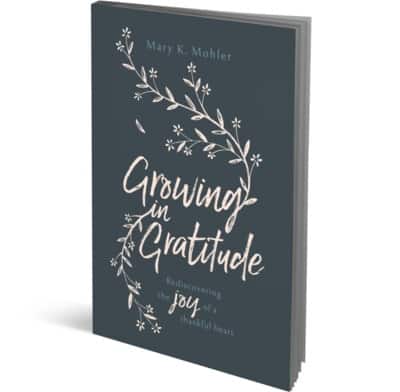⏱️ Estimated Reading Time: 4 min read
I didn’t realize this before reading Mrs. Mohler’s book, but this is her freshman book. Although this book is Mohler’s first, it does not read like you’d expect a first book to read. In just a short 130 pages, Mohler somehow demonstrates a type of hospitality in the way she writes. As I read through it, I made comments to my wife about how kind Mohler is even through writing. I felt as if she knew me and was concerned about me and the posture of my heart.
Mrs. Mohler wrote this book for women, but I highly recommend that men read this book. God has given a headship role to men, and they can set a tone of gratitude in the home. I write this even more aware of my shortcomings in this particular area after reading this book. The day I began reading the book I have a distinct memory of saying some pretty ungrateful things to my wife only to be deeply convicted about it the moment I opened this book.
The book begins with how gratitude should be the overflow of a believer’s life because of the kindness God has demonstrated to believers through the gospel.
We are a redeemed people, set apart by a kind God before the foundation of the world.
Utilizing Jonathan Edwards’s book, Religious Affections, Mohler gives us handles on two types of gratitude and teases them out throughout the book.
The first is gracious gratitude. Using Edwards, Mohler defines gracious gratitude as “thankfulness for God himself-for who he is” (31).
Gracious gratitude is the foundational gratitude for believers. It is foundational because it is rooted in God’s character; his unchanging attributes. Mohler says that this type of gratitude demonstrates we belong to God.
The second type of gratitude highlighted in the book is natural gratitude. Natural gratitude is a “thankfulness for blessings received- for good gifts” (31).
This is implicit in the definition, but this type of gratitude arises when we intentionally press pause and count the blessings we receive by God’s providential hand.
As I read about the two types of gratitude, I was struck by how similar gracious gratitude and natural gratitude are to special grace and common grace. Much like gracious gratitude, special grace is reserved for believers only. Only believers have the capacity to know God and appreciate who he is. This is because of the special grace believers have received from God in the finished work of Jesus. Natural grace, much like common grace is experienced by all people even though not all people recognize the Giver of the gifts.
From there, Mohler spends several chapters working through obstacles of gratitude. These obstacles are divided by chapters that include:
- Longing for the Lost: Mohler says we must entrust our lost family and friends in prayer to the Lord knowing that only God knows and controls the bigger picture of life and salvation.
- Too Busy to Bother: Mohler says we must flee from having a distracted heart so that we may grow in our attentiveness to the things that matter and consequently our gratefulness to God.
- If Only Life Were Different: Mohler challenges us in the area of contentment and humility. We must see our circumstances- whatever they may be- as an opportunity to glorify God and enjoy him.
- The Doubt Slayer: Mohler encourages believers to rest in the finished work of Christ.
I highly recommend Mrs. Mary K. Mohler’s book to every Christian (even though her target audience is women). This will be a book I not only apply to my own life but also give out to those I care for and counsel at our local church.




